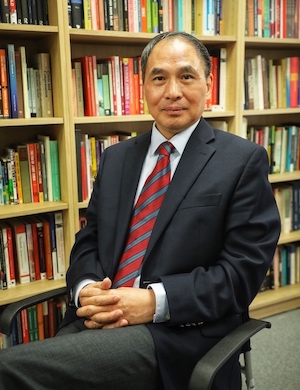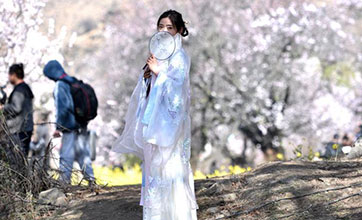US attempts to use the alliance system against China in vain

At the high-level strategic dialogue between China and the United States in the Alaskan city of Anchorage from March 18 to 19, China was ready to communicate sincerely, while the US acted domineering towards China. But unexpectedly, China turned the tables and counterattacked.
However, the Anchorage talks still achieved positive results. Both parties could find each other's red line through communication and make it a starting point for both parties to face and bridge their differences. There are areas of cooperation, competition and confrontation between China and the US. On the issues like the COVID-19 pandemic, economic and trade issues, emissions of carbon dioxide and climate change, both parties will suffer without cooperation since it would be difficult to solve the problems without the cooperation of the two countries. At the same time, with the rise of China, competition between China and the US is understandable and inevitable in some areas, especially in science, technology and governance model. But on issues involving Taiwan, Hong Kong and Xinjiang, which are related to China's core interests, China will not compromise or make concessions, and will make firm responses to the baseless accusations made by the US.
Cooperation and competition are the major trends in China-US relations. China and the US have many potential areas for cooperation. However, under the current situation, the basis of China-US cooperation is attitude, that is, whether the two parties can treat each other equally. The China-US strength gap in many areas is not as great as before. But the US is still domineering towards China, which makes it difficult for the two parties to trust each other. It is also necessary to maintain rational and not-so emotional communication, in order to be able to adjust their policies in time to deal with the latest situation. As two of the largest countries in the world, both sides could jointly do more action conducive to international order and provide more international public goods. Cooperation can be implemented under the framework of the United Nations or coordinated through international organizations.
The US has declared China as a strategic competitor. It should be noted that the two sides should avoid vicious competition like the US and the Soviet Union during the Cold War. Otherwise, it will cause disaster to the whole world. As two major nuclear powers, the two sides are unlikely to have a direct conflict, but proxy wars are possible to happen. China advocates a community with a shared future for mankind, and has never excluded any country. At the same time, the US is engaged in trade protectionism and economic nationalism, trying to divide the world.
It is in vain for the US to use the alliance system to against China, since the allies make decisions only based on their own national interests. Due to the frequent withdrawal from several international organizations and other improper actions of the US, the relationship between the US with allies is no longer as close as before.
China has close economic ties and common interests with most countries in the world, especially the ASEAN countries. Today's world economic engine is shifting from the US and Europe countries to the Asia-Pacific, and Asia-Pacific relations have become more and more important today. The signing of the Regional Comprehensive Economic Partnership (RCEP), the world's biggest trade pact, will boost the ties between China and other Asia-Pacific countries. There are two advantages of China to the world: the potential benefits of openness and a huge market. No country will abandon Chinese market.

The author is Acting Dean of the School of Humanities and Social Science and Director of the Advanced Institute of Global and Contemporary China Studies of the Chinese University of Hong Kong (Shenzhen). The opinions expressed in the article reflect those of the author, and not necessarily those of the People's Daily.
Photos
Related Stories
- NASA urged to respect China's sovereignty, territorial integrity
- U.S. needs new understanding with China to ensure world stability, says Kissinger
- China refutes Antony Blinken's accusations regarding COVID-19 origin tracing
- China says Five Eyes Alliance cannot represent international community
- U.S. threatens China, not vice versa: Chinese FM
- Alliance drives promotion of electric cars
- Faurecia signs alliance with Geely Holding
- 17 global historical cities establish alliance to protect cultural heritage
Copyright © 2021 People's Daily Online. All Rights Reserved.










